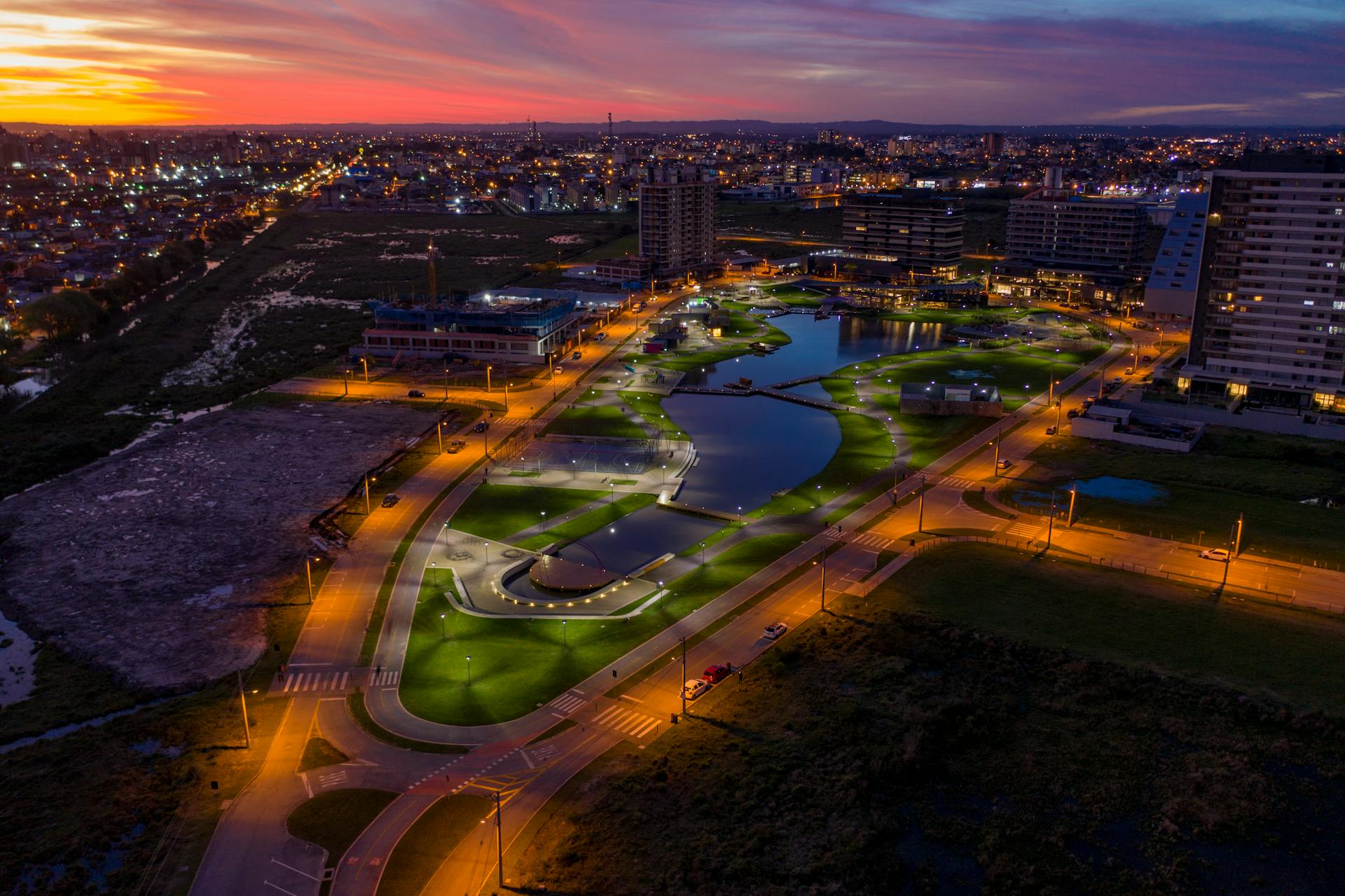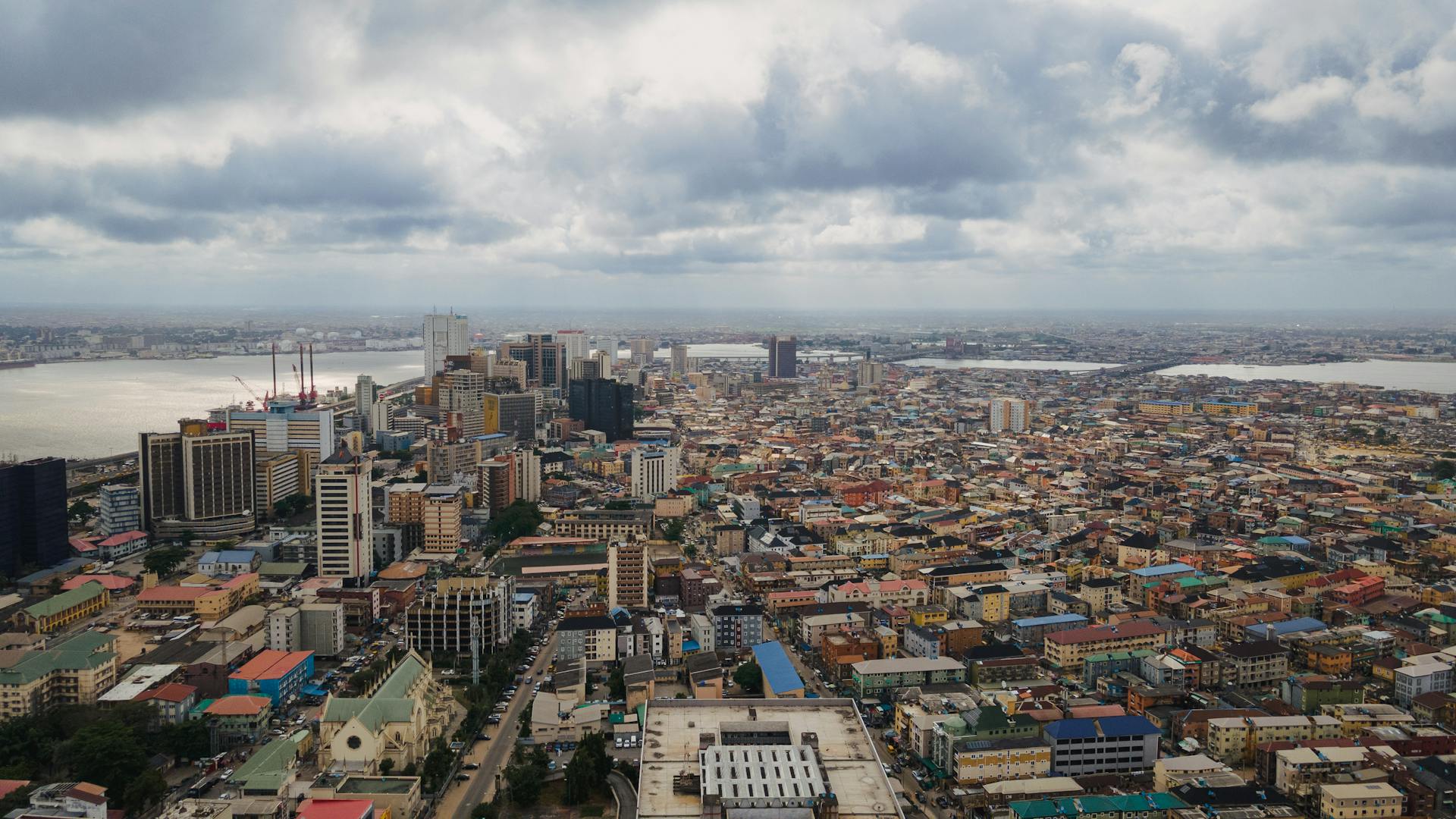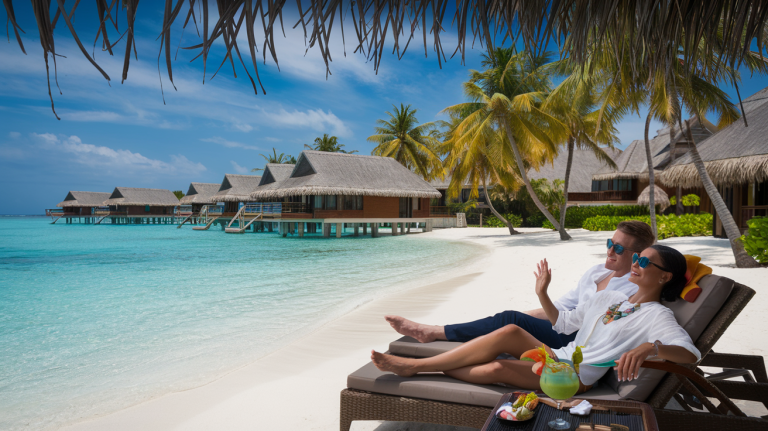Why Nigeria Should Be Your Next Travel Destination: Africa’s Hidden Gem

Have you ever considered Nigeria for your next adventure? I certainly didn’t until a few years ago when I stumbled upon images of breathtaking waterfalls and vibrant festivals, and heard stories about the warmest hospitality on the continent. As someone who’s always looking for destinations off the beaten path, Nigeria captured my imagination instantly.
Nigeria remains one of Africa’s best-kept secrets, overshadowed by more mainstream African destinations. But trust me, this West African powerhouse offers experiences you simply won’t find anywhere else. From the bustling energy of Lagos to the serene mountain retreats and wildlife sanctuaries, Nigeria delivers an authentic African experience that will transform how you view this incredible continent.
In this guide, I’ll take you through why Nigeria deserves a spot on your travel bucket list, what makes it special, and how to make the most of your visit. So buckle up as we explore the wonders of Africa’s giant!
10 Compelling Reasons Nigeria Should Be Your Next Destination
1. Unmatched Cultural Diversity
Nigeria isn’t just a country; it’s a vibrant tapestry of over 250 ethnic groups, each with their own languages, traditions, and cultural expressions. Where else can you experience such incredible diversity within a single nation?
I was amazed to discover that in just one trip, you can witness the regal traditions of the Hausa-Fulani in the north, experience the entrepreneurial spirit of the Igbo in the east, and enjoy the colorful ceremonies of the Yoruba in the southwest. This cultural mosaic makes every region feel like a different country!
The artistic traditions alone will blow you away. From the bronze sculptures of Benin City to the indigo-dyed textiles of the north, Nigerian craftsmanship speaks volumes about the country’s rich heritage.
2. Mouthwatering Cuisine That Will Transform Your Palate

Nigerian food deserves its own spotlight. If you’re a foodie seeking new flavors, you’re in for a treat. Nigerian cuisine is bold, flavorful, and utterly addictive.
The first time I tried jollof rice, Nigeria’s famous spicy rice dish, I understood why there’s such fierce competition about which West African country makes it best (spoiler alert: Nigerians will insist theirs is superior!). The complex blend of tomatoes, peppers, onions, and spices creates a dish that’s simple yet extraordinary.
Don’t miss these culinary highlights:
- Suya: Skewered beef rubbed with spicy peanut mix and grilled to perfection
- Egusi Soup: A rich, savory soup made with ground melon seeds and leafy vegetables
- Pounded Yam with Vegetable Soup: A smooth, stretchy staple paired with hearty soups
- Pepper Soup: A spicy, aromatic broth often enjoyed with fish or meat
- Moi Moi: Steamed bean pudding with a delicate, custard-like texture
Street food in Nigeria is particularly exciting. My favorite memory is standing at a roadside stall in Lagos, watching a vendor expertly flip suya skewers over an open flame while chatting with locals about the best spots to visit in the city.
3. Stunning Natural Landscapes for Every Type of Traveler
Nigeria’s geography will surprise you with its diversity. From pristine beaches along the Atlantic coast to rolling highlands and lush forests, the country offers natural beauty that rivals more famous African destinations.
One of my most memorable experiences was hiking through the misty trails of Obudu Mountain Resort, where the cool mountain air and panoramic views completely changed my perception of Nigeria. I had always associated West Africa with heat and humidity, but at 1,576 meters above sea level, I needed a light jacket!
The country’s national parks and reserves offer opportunities to connect with nature in its purest form. Yankari Game Reserve, with its ancient warm springs and wildlife including elephants and hippos, offers safari experiences without the crowds you’d find in East Africa.
4. Vibrant Cities That Never Sleep

Lagos, Nigeria’s economic hub, pulses with an energy that’s infectious. It’s a city of contrasts where gleaming skyscrapers stand alongside historic districts and where tradition meets innovation at every corner.
My first night in Lagos, I was overwhelmed by the sensory experience—the sounds of Afrobeats pouring from clubs, the smell of grilled suya from street vendors, and the sight of fashionable locals dressed in both Western styles and colorful traditional attire.
Beyond Lagos, cities like Abuja (the capital) offer more orderly urban experiences with impressive architecture and green spaces, while Calabar is known for its cleanliness and relaxed atmosphere.
5. Festivals That Showcase the Spirit of Nigeria
If you want to experience Nigerian culture at its most expressive, time your visit around one of the country’s spectacular festivals. The Calabar Carnival, often called “Africa’s Biggest Street Party,” transforms the city every December with parades, music, dance, and colorful costumes.
I was fortunate to witness the Durbar Festival in northern Nigeria, where horsemen dressed in elaborate outfits paraded before traditional rulers in a display that has remained largely unchanged for centuries. The pageantry, the music, the colors—it was like stepping into another era entirely.
Other festivals worth planning your trip around include:
- Osun-Osogbo Festival: A two-week celebration honoring the river goddess Osun
- New Yam Festival: Celebrated across southeastern Nigeria to mark the harvest season
- Eyo Festival: A rare Lagos spectacle featuring masquerades in white robes and hats
- Argungu Fishing Festival: Where thousands compete in a fishing competition using traditional methods
6. Adventure Opportunities for Thrill-Seekers
Adventure travelers, take note! Nigeria offers experiences that will get your adrenaline pumping. Rock climbing at Olumo Rock or Zuma Rock challenges even experienced climbers, while kayaking through the creeks of the Niger Delta provides a unique perspective on local river life.
The seven-tiered cascades of Erin Ijesha Waterfalls beckon hikers with the reward of natural pools perfect for a refreshing swim after the climb. During my visit, I joined a group of local adventure enthusiasts who knew all the best spots for photos and swimming.
For something truly unique, consider exploring the massive Mpape Crushed Rock, an abandoned quarry that has become an Instagram favorite with its dramatic landscapes that feel almost otherworldly.
7. Eco-Tourism Destinations You’ve Never Heard Of
Conscious travelers will find plenty of eco-friendly experiences in Nigeria. The Lekki Conservation Centre in Lagos features a 401-meter canopy walkway—the longest in Africa—where you can observe wildlife from above without disturbing their habitats.
Ikogosi Warm Springs offers the rare natural phenomenon of warm and cold springs meeting—I could literally stand with one foot in warm water and the other in cool water! The surrounding eco-resort is committed to sustainable practices while offering comfortable accommodations.
8. Rich Historical Sites That Tell Important Stories
History buffs will find Nigeria’s past fascinating and complex. The ancient walls of Kano, built between the 11th and 14th centuries, are among Africa’s most impressive historical structures. Meanwhile, the Slave History Museum in Calabar provides important context for understanding the transatlantic slave trade’s impact on West Africa.
I found the Nike Art Gallery in Lagos particularly moving—it’s not just a museum but a living archive of Nigerian artistic expression through the decades, telling stories of colonialism, independence, and modern challenges through creative works.
9. Affordable Luxury Experiences
Your money goes further in Nigeria than in many African destinations. Five-star hotels in Lagos or Abuja often cost a fraction of what you’d pay in cities like Cape Town or Nairobi, while offering excellent service and amenities.
I stayed at a boutique hotel in Lagos where my suite overlooked the lagoon, included daily breakfast featuring both Nigerian and continental options, and cost less than a standard room would in many European capitals.
10. The Famous Nigerian Hospitality
Perhaps the most compelling reason to visit Nigeria is its people. Nigerians are known for their warmth, generosity, and zest for life. Don’t be surprised if you’re invited to family celebrations, offered home-cooked meals, or given impromptu tours by locals proud to show off their homeland.
During my stay, a shop owner in Abeokuta spent an entire afternoon guiding me through the town’s historical sites, refusing payment and insisting, “You are our guest in Nigeria.” This kind of genuine hospitality is increasingly rare in our world of commercial tourism.
Best Time to Visit Nigeria
Timing your visit right can make a huge difference to your Nigerian experience. The dry season, running roughly from November through March, offers the most comfortable conditions for exploring. During these months, you’ll enjoy sunny days and minimal rainfall, making it ideal for wildlife viewing at Yankari Game Reserve or hiking at Olumo Rock.
If you’re interested in cultural events, December is particularly special with the Calabar Carnival lighting up Cross River State. However, be prepared for higher accommodation prices during this peak period.
I visited in January and found it perfect—dry weather with temperatures in Lagos hovering around 32°C (90°F) during the day and cooling to pleasant evenings. The harmattan (a dry, dusty wind) can affect northern areas during this time, occasionally reducing visibility but rarely enough to disrupt travel plans.
Safety Tips for Travelers to Nigeria
Like many destinations, Nigeria requires some common-sense precautions. Here’s what worked for me:
- Research areas before visiting and stick to recommended tourist destinations
- Consider hiring a local guide who knows the terrain and culture
- Use reputable transportation services rather than hailing unknown taxis
- Keep valuable items secure and avoid flashy displays of wealth
- Register with your country’s embassy upon arrival
- Purchase comprehensive travel insurance that covers Nigeria specifically
Most tourist areas are well-patrolled and safe for visitors. I never felt threatened during my travels across the country, though I did maintain awareness of my surroundings as I would in any major city worldwide.
Top 5 Must-Visit Destinations in Nigeria
1. Yankari Game Reserve
![Yankari Game Reserve – insert image of elephants or wildlife at Yankari]
Nigeria’s premier wildlife destination, Yankari offers safari experiences where you can spot elephants, baboons, waterbucks, and numerous bird species. The Wikki Warm Spring within the reserve provides a natural swimming pool with constant 31°C water—perfect for relaxing after a day of wildlife spotting.
What made Yankari special for me was how uncrowded it felt compared to more famous African safari destinations. Our guide had time to explain tracking techniques and local conservation efforts, creating a more educational experience than the sometimes rushed feeling of more commercial safaris.
2. Obudu Mountain Resort
Perched at high altitude in Cross River State, Obudu offers a climate that’s surprisingly cool for West Africa. The cable car ride to the resort provides breathtaking views of the surrounding mountains and valleys.
I spent three days hiking various trails around the resort, each offering different perspectives of the landscape. The morning mist rising from the valleys created photography opportunities that still rank among my favorite travel images.
3. Lagos Island and Victoria Island
The commercial and cultural heart of Nigeria’s largest city deserves at least a few days of exploration. From the Nike Art Gallery to the National Museum, from high-end shopping malls to traditional markets, Lagos offers urban experiences to rival any world city.
Don’t miss Freedom Park, a former colonial prison transformed into a leisure space with historical exhibits, or the buzzing energy of Bar Beach where locals gather in the evenings.
4. Osun-Osogbo Sacred Grove
This UNESCO World Heritage site preserves the sacred forest of the Yoruba goddess Osun. Ancient sculptures and shrines dot the landscape, while tall trees create a cathedral-like atmosphere that feels deeply spiritual regardless of your religious background.
My visit coincided with a small ceremony where I witnessed traditional priests making offerings at the river. The reverence with which cultural traditions are maintained here was profoundly moving.
5. Calabar
Known as Nigeria’s tourism capital, Calabar combines historical significance with natural beauty. The city’s colonial architecture houses museums and cultural centers, while the surrounding region offers access to Cross River National Park and drill monkey sanctuaries.
Calabar’s reputation for cleanliness and organization makes it an easy introduction to Nigeria for first-time visitors. The food scene here is particularly notable, with fresh seafood featuring prominently in local dishes.
Practical Tips for Your Nigerian Adventure
Visa Requirements
Visitors from ECOWAS countries enjoy visa-free entry, but most other nationalities need to arrange visas before arrival. Nigeria now offers a Visa on Arrival program for many countries, though you’ll need to apply online before your trip.
I found the visa process straightforward—I applied through the official Nigerian Immigration Service website, received approval within three days, and had my visa issued upon arrival at Lagos International Airport.
Getting Around
Internal flights connect major cities and save significant time compared to road travel. Airlines like Air Peace and Arik Air offer reliable domestic services.
For shorter distances, I recommend hiring a driver rather than self-driving, as Nigerian roads and traffic patterns can be challenging for visitors. Ride-hailing apps operate in major cities and provide a convenient option for urban transportation.
Accommodation Options
Nigeria offers accommodation ranging from international luxury chains to boutique hotels and guesthouses. In Lagos and Abuja, you’ll find familiar names like Radisson Blu and Sheraton alongside local luxury options.
For more authentic experiences, smaller cities often have charming guesthouses. In Abeokuta, I stayed at a family-run establishment where breakfast included homemade akara (bean cakes) and local fruits picked that morning.
What to Pack for Nigeria
- Lightweight, breathable clothing (with some modest options for rural areas and religious sites)
- Good walking shoes for urban exploration and light hiking boots if visiting nature reserves
- Insect repellent and sunscreen
- Universal power adapter (Nigeria uses the UK-style three-pin socket)
- Basic medical kit including anti-diarrheal medication
- Cash for smaller establishments and markets (though credit cards are widely accepted in cities)
Final Thoughts: Why Nigeria Deserves Your Attention
Nigeria challenges the typical narratives about African travel. It’s not just about safaris or pristine beaches—though it offers both. It’s about experiencing a country that stands confidently at the intersection of ancient traditions and modern ambitions.
What struck me most during my time in Nigeria was the sense of possibility and energy that permeates everyday life. From tech startups in Lagos to artisans preserving centuries-old crafts in Kano, Nigeria pulses with creativity and resilience.
Yes, Nigeria has challenges—as does any destination worth exploring. But for travelers willing to look beyond headlines and seek authentic connections, Nigeria offers rewards that few countries can match: unforgettable hospitality, cultural experiences of incredible depth, and the chance to see a side of Africa that most travelers miss entirely.
So, when planning your next adventure, consider Nigeria. This vibrant nation might just become your most unexpected travel love affair.
Have you visited Nigeria or are you planning a trip there? Share your experiences or questions in the comments below!


